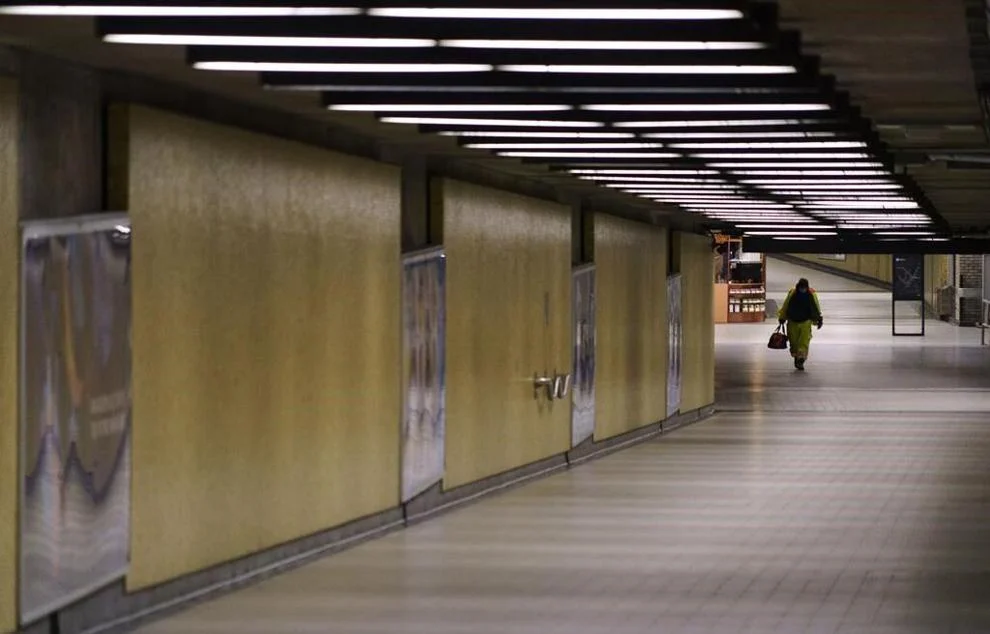
Montreal's transit authority has begun concentrating security personnel in metro stations where officials say riders have most reported feeling unsafe.A lone commuter walks a tunnel leading to the subway in Montreal, on Wednesday, Oct. 14, 2020. THE CANADIAN PRESS/Paul Chiasson
Montreal's transit authority, the Société de transport de Montréal (STM), is implementing enhanced security measures in response to growing safety concerns within certain metro stations. This move comes as the network grapples with an increase in individuals experiencing mental health or addiction issues.
Under the newly announced plan, the STM will deploy special constables and other safety personnel in teams of four to monitor ten stations where reports of riders feeling unsafe are most prevalent. According to security director Jocelyn Latulippe, incidents of uncivil behavior represent the primary concern.
Each security team will be responsible for overseeing a group of three to four stations. They will patrol these stations and swiftly respond to any problematic situations that may arise, Latulippe explained during a press briefing.
The implementation of this enhanced security plan commenced on Saturday and is scheduled to continue until the end of the month. Latulippe described it as a transitional measure from the cold season, when many individuals seek shelter in the metro, to the warmer months, which typically see fewer issues related to mental health. However, he noted that the STM may extend the operation if deemed necessary.
This announcement follows an assault outside Lionel-Groulx station that left a 35-year-old man hospitalized with serious injuries. Four teenagers were arrested in connection with the incident.
STM board president Éric Alan Caldwell emphasized the changing landscape, highlighting an increase in reports of vulnerable individuals, addiction concerns, and mental health issues within the network. He stressed the importance of not taking riders for granted and expressed concern about their loyalty.
While the enhanced security plan aims to reassure passengers, Latulippe stressed the need for greater intervention from health and social services to support individuals in need. He warned that without such intervention, the metro would continue to serve as a temporary refuge for individuals lacking access to appropriate resources.
Caldwell echoed this sentiment, calling for improved health and housing support. He emphasized that the metro system is downstream of the larger societal issues and stressed the importance of addressing root causes such as housing insecurity, access to healthcare, and addiction support.
The ten targeted stations include Bonaventure in downtown Montreal; Beaudry, Papineau, Frontenac, and Joliette to the east; Atwater and Lionel-Groulx to the southwest; and Mont-Royal, Jean-Talon, and Jarry to the north. Additionally, Berri-UQAM, a major transfer hub, already maintains a constant security presence.
While some metro riders acknowledged feeling uneasy due to the presence of individuals experiencing homelessness or health issues, they recognized the complexity of finding solutions to address these challenges.
In response to the security plan, Montreal city hall opposition leader Aref Salem criticized it as inadequate, calling for concrete measures to improve safety in the metro. His party advocates for increased staffing of officers and special constables, as well as the implementation of a comprehensive security improvement plan.
Despite financial constraints, the STM is utilizing overtime hours to staff the current operation. Caldwell emphasized the authority's commitment to enhancing security and sanitation, with plans to hire an additional 60 security and sanitation personnel, despite recent layoffs in other departments.















